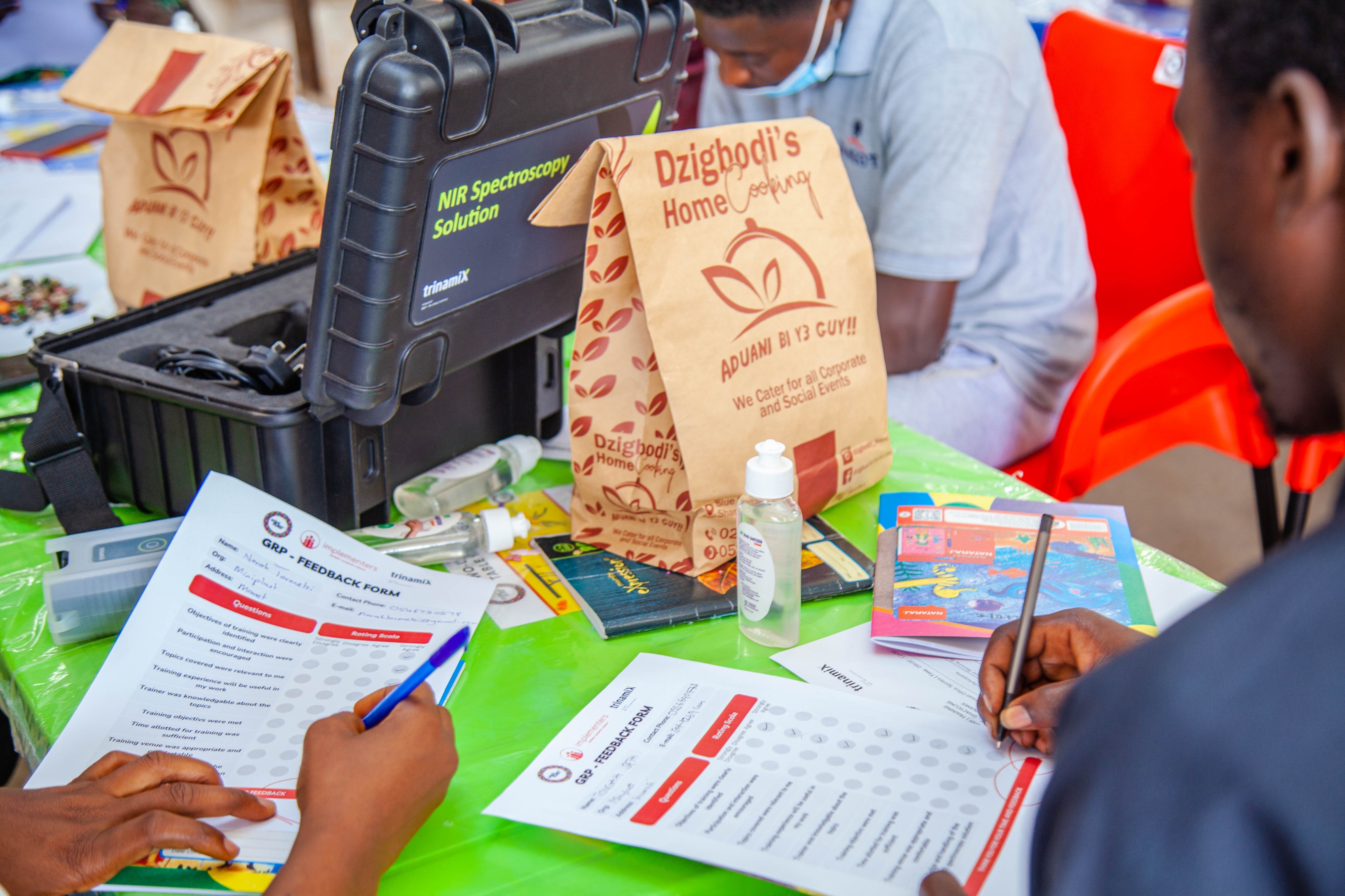

Sorting out the plastic waste problem
How IMPLEMENTERS is creating a sustainable impact in Ghana
For the second post of our new blog series “Sorting out the plastic waste problem”, we spoke to Kofi Opoku, Senior Associate, Business Development - Corporate and Individual Philanthropy at IMPLEMENTERS. As part of the Ghana Recycling Project (GRP), he and his team are creating awareness for the impact of plastic waste among communities across the country while supporting local plastic collectors in enhancing their processes.
As a winner of our Plastic Waste Challenge, IMPLEMENTERS has been equipped with our Mobile NIR Spectroscopy Solution. In our interview, Kofi told us more about their mission to tackle recycling challenges in Ghana for future generations.
Tell us about IMPLEMENTERS and its mission …
Kofi: “IMPLEMENTERS is a project management non-profit that partners with charitable organisations, philanthropists, and corporate institutions to positively impact communities. In our quest to create a sustainable impact, we address social challenges and prioritise participatory development, which leads to a more tangible and lasting impact for future generations. We do this by using professionally developed processes that ensure that projects remain relevant even after years of implementation.”
Could you elaborate on recycling challenges you’re facing in Ghana?
“In January, we conducted interviews with stakeholders in the regional recycling industry through a face-to-face engagement to understand their operational and business needs.
The general results of the assessment indicated that most plastic collectors were only familiar with improper plastic waste management and recycling processes. The majority of respondents expressed their inability to distinguish between the different types of plastics. This is where our latest project, the Ghana Recycling Project (GRP) comes into play.”
What is at the core of the Ghana Recycling Project?
“The overall goal of our project is to educate the Ghanaian people on the impact of plastic waste when it comes to the environment and human life. But it doesn’t end there.
Another important goal lies in educating and building capacities for plastic collectors in Ghana by empowering them to use technologies that help make the plastic recycling process much simpler and more efficient.”

How does trinamiX contribute to your project?
“trinamiX’s handheld solution offers a method to identify and separate different types of plastic materials in the recycling process. This makes it possible to deal with the sorting challenge faced by the plastic collectors and other stakeholders in the recycling of plastics, for example by ensuring that the materials are processed correctly and efficiently.
This information can then be used to sort the plastics according to their types and process them accordingly, which can increase the efficiency of the recycling process and reduce the amount of waste that ends up in landfills or incinerators.”

The first training with plastic collectors already took place – how did it go?
“The training was held in collaboration with Miniplast Ltd and a thorough evaluation of the training programme showed positive impact as the plastic collectors exhibited improved understanding and knowledge of plastic sorting during the recycling process.

The introduction of the solution to the training participants was well received and demonstrated a more efficient and effective way of sorting out plastics without errors.”
What were your findings on the usability of the solution?
“The solution requires little training on how to use the technology. Within minutes, the collectors could apply the solution and even offer training to their colleagues.
It is fast, accurate and versatile when looking at the broad range of supported plastic types. Another important aspect is the non-destructive method that allows the analysis of plastic materials without damaging them. This means that plastics can be sorted without compromising their quality or integrity, which is crucial for recycling.”
How are these benefits translated into actual value?
“There are several economic and environmental aspects to the usage of the solution. If we first examine the business side, recycling plants are enabled to sort materials more efficiently and accurately, resulting in a higher yield of recyclable materials.
Looking at the downstream process, the quality of recycled materials is enhanced thanks to purer waste streams, making them more valuable and easier to process. This can increase the demand for recycled materials, creating a more sustainable recycling industry.
In addition, by reducing contamination and improving sorting efficiency, the solution helps reduce costs. This makes recycling more economically viable and increases the competitiveness of recycled materials in the market.”
What are the main benefits from a sustainability perspective?
“By identifying different types of plastics, the solution can help reduce contamination in the recycling process. Contamination from different types of plastics can degrade the quality of recycled materials, making them less valuable or even unusable.
Ultimately, the solution contributes towards reducing the amount of waste sent to landfills or incinerators. This, in turn, can reduce the environmental impact of waste disposal and conserve natural resources.”
Is there anything else we should know about IMPLEMENTERS?
"IMPLEMENTERS is a project management non-profit that partners with charitable organisations, philanthropists, and corporate institutions to positively impact communities. In our quest to create a sustainable impact, we address social challenges and prioritise participatory development, which leads to a more tangible and lasting impact for future generations. We do this by using professionally developed processes that ensure that projects remain relevant even after years of implementation.

We have a long-standing record of successfully managing social projects and maximising impact. We have implemented 30+ social development projects on behalf of our partners in the spaces of education, agriculture, sanitation, recycling and economic empowerment. Our work in the education sector alone has made a tremendous impact on the lives of over 90,000+ learners and 200+ teachers within 122 communities in West Africa. Read more at www.theImplementers.org"

Learn more about our solution
Click here if you want to understand how our Mobile NIR Spectroscopy Solution for Plastic Sorting adds value to your business.
